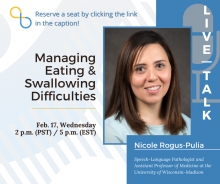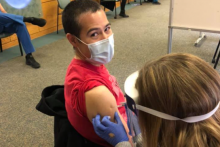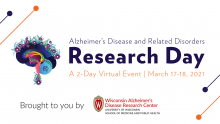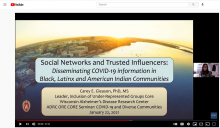
On Tuesday, March 9, Dr. Narjust Duma presented "Who Me, Biased? The Reality and the Solutions to Unconscious Bias in Medicine," during which she defined several types of unconscious bias, explained the impact of these negative associations, and discussed how to take action against implicit bias by becoming an active ally. In addition to serving as an assistant professor of medicine and a thoracic medical oncologist at the UW School of Medicine and Public Health, Dr...












